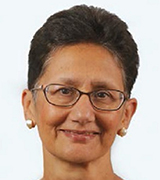Good healthcare requires a clinical workforce with a shared sense of purpose and a well-functioning healthcare system
Good healthcare depends on far more than access, technologies, and the skills of practitioners. The NHS has been efficient, cost-effective, and equitable for 70 years, yet the erosion of its founding principles—universal healthcare free at the point of need, funded through general taxation, government responsible and accountable through parliament—is destabilising services and creating growing health inequity, which is particularly damaging to children. The current direction of travel in the UK, towards a marketised model in which healthcare is considered a commodity, disadvantages everyone. The doctor-patient relationship is weakened by fear that personal or corporate considerations will be placed before patient welfare, the poor suffer from limits to access, the rich from over-investigation. There is a shortage of paediatricians in the UK and they now work within a health system where the destruction of pay parity, uncertainties of Brexit, a squeeze on pensions, chronic underfunding, and a growing private sector have weakened the shared sense of purpose that characterised the NHS. The recent high profile case of trainee pediatrician Hadiza Bawa-Garba has added to frustration, and indeed despair.
The oft repeated reasons said to explain the difficulties faced by UK health services—no money, ever increasing costs of medicines and technologies, and an ageing population—do not stand up to scrutiny. Firstly, the UK can afford more. The public have repeatedly indicated a willingness to pay more in taxes. Further, the waste of public monies, such as the award of over £3bn in contracts to for-profit healthcare providers despite a lack of evidence that this provides better or more cost-effective care, and indeed considerable evidence to the contrary, can and should be halted. As has often been said, funding is a political decision.
Secondly, just because a medicine or a technology is available does not mean it has to be used. A strength of UK medicine is that it recognises the best interests of the patient is often served not by striving to sustain life at all cost, but by attention to quality of life, shared decision making, and ultimately a good death. The UK pioneered the hospice movement that brought these concepts into mainstream medicine. The UK also created the National Institute of Health and Care Excellence to pioneer methods for fair cost-containment based on evidence and affordability. It is usually only when patients and the public have exaggerated expectations of modern medicine, or do not trust their caregivers, that futile options are pursued and costs soar.
Thirdly, healthy old age, as opposed to old age crippled by chronic disease, does not inevitably lead to greater healthcare costs. The elderly require good social care, yet the UK has singularly failed over many decades to address these entirely predictable needs. The chances of healthy old age are maximised by adopting, at a national level, a life-course approach to health built upon prevention and good public health policies. Yet public health funding has been reduced and delivery devolved to local authorities, with resulting fragmentation, a return of post-code lotteries, and widening health inequity. The major emphasis of government today appears to be on boosting the interventional industries that benefit from treating, not preventing, disease.
Health is the product of far more than healthcare. The concept of universal healthcare has been helpful in drawing attention to the responsibility of governments towards their citizens. However, it is time to move forward and recognise that the health of the workforce, and the nature of health services, are as important as access, technologies, and the skills of practitioners.
Neena Modi is a professor of neonatal medicine, Imperial College London. She is also past president of the Royal College of Paediatrics and Child Health.
Competing interests: None declared.

